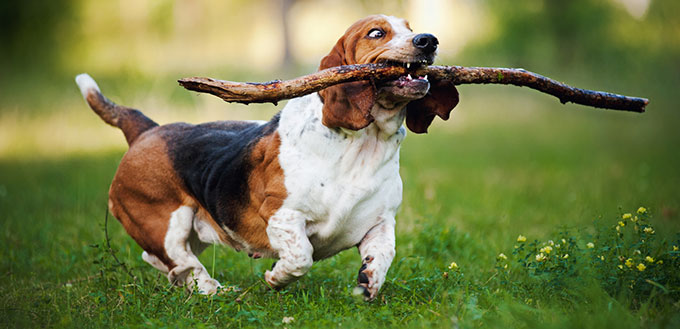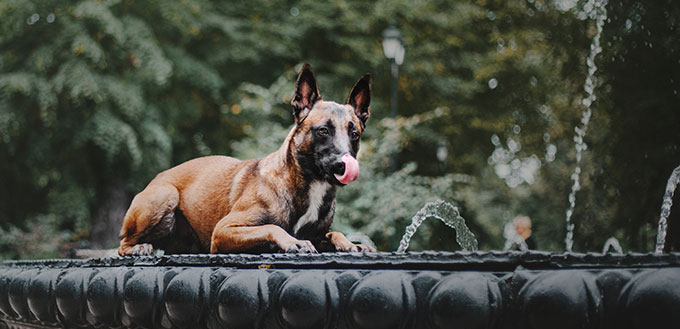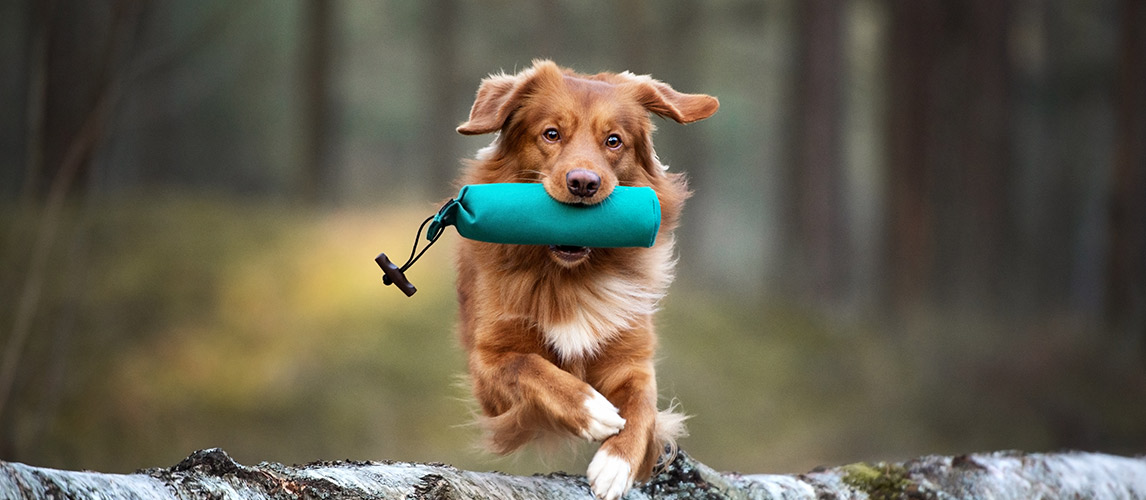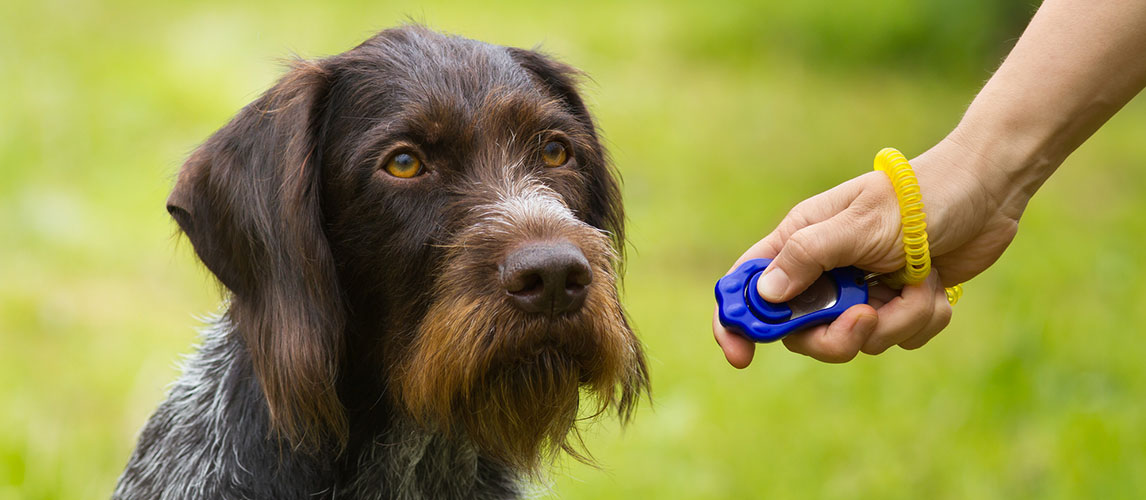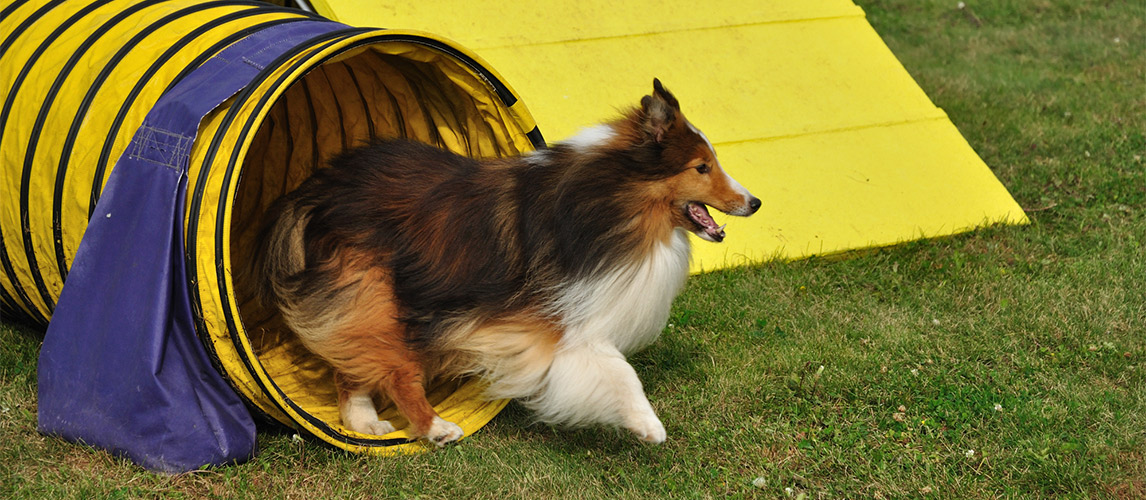Training is most associated with puppies. Every dog parent knows how important it is to teach your puppy the behaviors you want them to exhibit. This makes them more social and provides a better home life for everyone involved. Training also helps to deal with the excess energy that your puppy has, improve their bond with you, and keep them mentally stimulated. However, older dogs sometimes need to learn or relearn these behaviors. If you adopt an older dog, you may find that they have not been trained, that the training has been forgotten, or simply that the move to a new home has left them feeling vulnerable.
Training an older dog can be just as rewarding and successful as training a puppy. It can also help to keep their minds sharp as they get older and help you build a relationship with your older adoptee. It is possible to train dogs once they are past the puppy stage, but it takes time and patience. In this article, we look at tips on how to teach an old dog new tricks and how to ensure success and a happy dog.
Patience Really is Key
Bringing an older dog into your home can be unsettling for them as much as it is for you. They come with their own history and experiences. They will have their own routine or lack of routine and their own expectations of living with a family. Time to adjust is a must if you are going to successfully integrate your older dog into your family and teach them how to behave. Depending on your dog’s history and where you have adopted them from, it can take up to three months for them to feel as if your home is also their home. During this time, they will be working out the basics, including when they are fed, where they are allowed to go to the toilet, and what items in your home are not toys. Setting a routine during these first three months will help them acclimatize to new things quicker and give them a sense of permanence.
Depending on your dog’s history and past experiences you may wish to get a professional dog trainer to assist with basic dog training. If your dog is particularly nervous or has control issues, then you will need to address these before you can move onto new tricks with your dog. A professional trainer will help you to ensure that you are taking the best possible positive approach and support you and your dog with any specific training issues.
Don’t Make Assumptions
It is easy to assume that your older dog knows how to behave in the house and that they are already housebroken. Such assumptions can lead to a lot of puddles, messes, and chewed furniture. It can even leave you asking can you train an old dog? It is important not to get disheartened and to take the same approach with your older dog as you would a new puppy. Invest in a good quality dog crate and keep your dog crated when you are not supervising them. Ensure that the dog crate is large enough for them to stand, stretch, turn, and lay down easily. Make it welcoming and comfortable. Add a dog blanket, their favorite toy if they have one, and ensure that they have access to freshwater. Don’t leave them in there for long periods of time. Ensure that you take them out for exercise and playtime and begin to develop a toileting routine that works for you and your dog.
If your dog has never been crate trained before or is nervous about the dog crate, then take this slowly. Offer praise and dog treats when they enter the crate. Only keep them in there for a few minutes before letting them out and giving more praise. Slowly increase the amount of time that they are in the crate and never use the crate as punishment. It should be a safe quiet space for them where they are happy to go when you cannot be with them.
Get Everyone on the Same Page
If there are other people in your home, you all must share the same ideas on your dog’s routine and behavior. If different people have different behavior standards or change your dog’s routine, it can be very confusing for them. Agree on what is expected from your dog, and from each other about your dog. If your dog is not allowed on the couch or the beds, then everyone must agree and not allow sneaking visits when no one is looking. The same goes for feeding titbits as a treat, especially while the family is eating. Not only does this encourage bad behavior around food, but it could lead to your dog ingesting foods that are dangerous or them being overfed and becoming obese. Teaching your dog new tricks also works better when you all agree on the commands that you will use and the treats that you will use to reward your pet’s good behavior.
Start as You Mean to Go On
Training older dogs how to walk on a leash is essential if you are to both enjoy walks. Constantly pulling, grabbing the lead, or not stopping at roads can be frustrating and dangerous for both you and the dog. To successfully train your adult dog, you must set the rules and boundaries from your very first walk together. If they begin to pull, stop, and wait. Reward your adult dog when they walk without pulling. Take the same approach at roads; reinforce with voice commands and reward good behavior. How long it will take to teach an old dog good walking habits will depend as much on their past experiences as it will on anything else.
Understand your Dog’s Limitations
Training older dogs are not just about the basics of house training and good dog walking habits. It is also about keeping them mentally and physically active. However, you need to be aware that an older dog will not have the energy of a puppy, although there are always exceptions to this rule. Work at their pace and if your dog show signs of tiredness or discomfort stop training, rest and reassess whether what you are doing is suitable for your pet. If you are considering joining a training or agility program with your old dog, then checking with your veterinarian first is probably a good idea.
You may also like our articles on Supplements for Older Dogs and Joint Supplements for Dogs.
Can Old Dogs be Trained?
The short answer is yes older dogs can be trained, and very successfully too. Bringing an older dog into your home can be very rewarding. Knowing that you are giving an older dog a second chance at happiness is one of the best feelings there is. However, it comes with its own set of challenges that you must be prepared for, especially during training. Patience and understanding will take you a long way when training an older dog. Getting the basics right is a must. Make sure that they have the right nutrition, suitable toys, and treats, and that you get them checked by a veterinarian. If they have medical conditions or age-related mobility problems, they need to be considered when you begin your training program. Once you have covered the other basics of house training and socialization the only limitations to what you can teach your senior dog is their enthusiasm.
Sources:
- Mikkel Becker, Your Dog Is Never Too Old for Training, Vetstreet
- Lynn Buzhardt, DVM, Can Old Dogs Learn New Tricks? VCA


